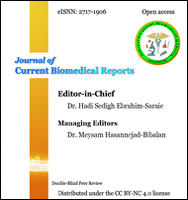The Role of Gut Microbiota in the Treatment of Inflammatory Bowel Disease: A Promising Pathway to Better Health
Abstract
Inflammatory bowel disease (IBD) is a chronic inflammatory condition of the gastrointestinal tract. The gut microbiota plays a crucial role in the development and progression of IBD. In IBD patients, the composition of the gut microbiota is significantly different from that of healthy individuals. Dysbiosis, an imbalance of beneficial and harmful bacteria, is a hallmark of IBD. The development of microbiota-targeted treatments requires a comprehensive understanding of the gut microbiota composition, its interaction with the host immune system, and its role in the pathogenesis of IBD. This review discusses the prospects for microbiome-based therapies in IBD. Pre- and probiotics, as well as faecal microbiota transplant (FMT), are examples of microbiome-targeted treatments. These approaches are predicated on the idea that reestablishing a healthy gut microbiome might reduce mucosal inflammation. The fundamental components of commensal gut bacteria's metabolism are known as prebiotics. Probiotics are supplements that artificially introduce gut microorganisms that are believed to have positive effects on the surrounding microenvironment and may even help with IBD symptom relief. FMT is a more direct way of introducing bacteria than probiotics, yet the same bacteria are present in the bodies of healthy people at larger concentrations. Current evidence suggests that microbiome-targeted therapeutics may have some benefit for IBD. With advancements in technology and research, microbiota-targeted treatments have the potential to revolutionize the management of IBD and improve clinical outcomes for patients.
Refbacks
- There are currently no refbacks.
Copyright (c) 2025 Zahra Rafiezadeh, Laleh Hoveida, Sayed Hossein Hejazi

This work is licensed under a Creative Commons Attribution-NonCommercial 4.0 International License.












